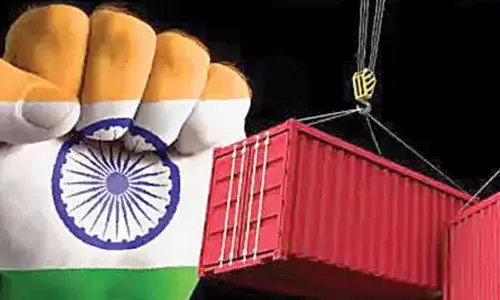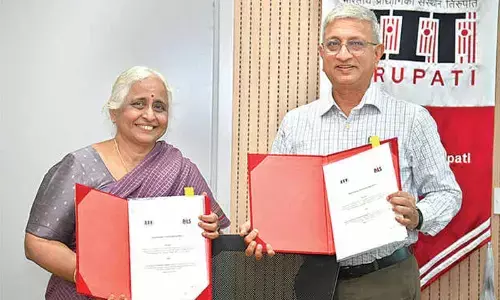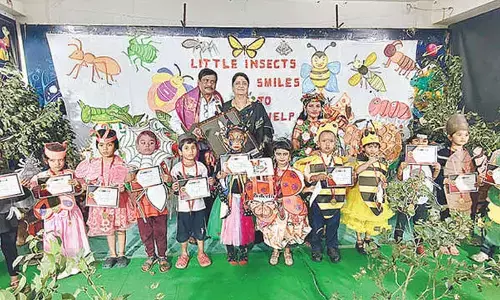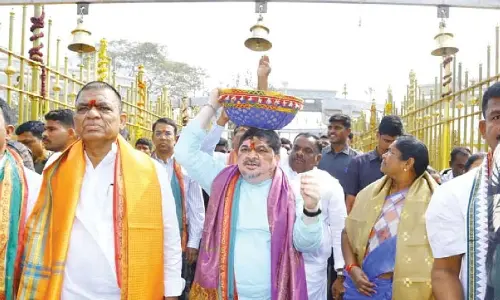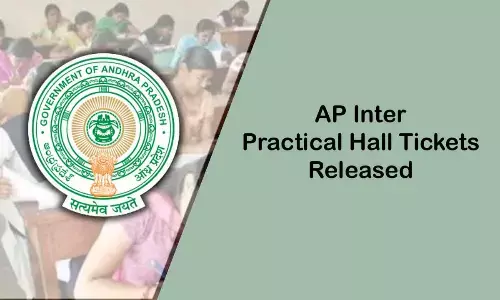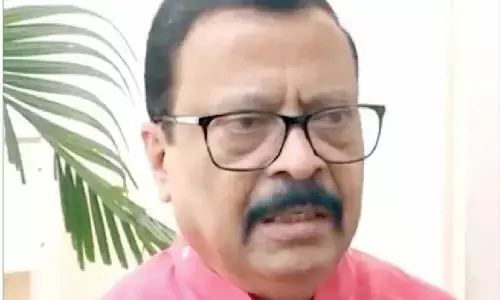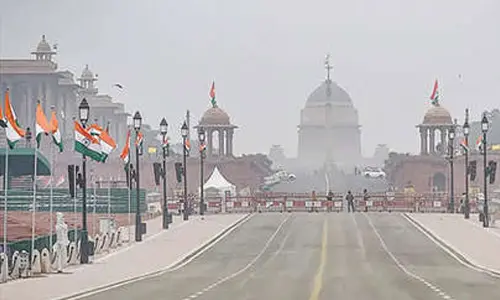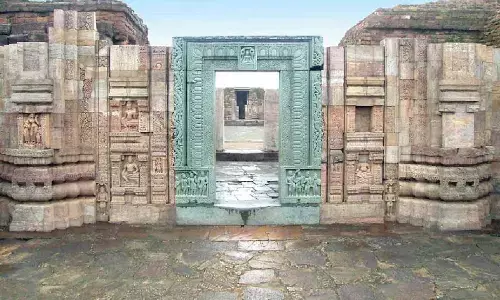Chhattisgarh CM Raman Singh: There is a pro-incumbency wave in state
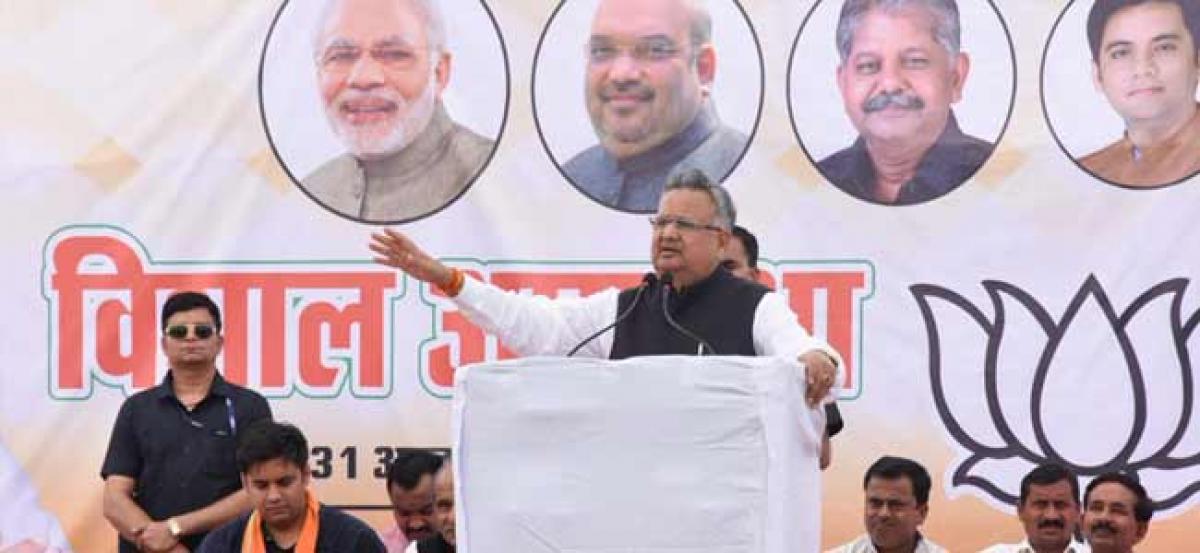
Eyeing his fourth consecutive term as Chhattisgarhs Chief Minister, Raman Singh said on Monday it was good that his predecessor, Ajit Jogi, had joined the fray to make it a threeway fight, even as he acknowledged this third force would also impact his party, besides hurting the Congress
Eyeing his fourth consecutive term as Chhattisgarh's Chief Minister, Raman Singh said on Monday it was "good" that his predecessor, Ajit Jogi, had joined the fray to make it a three-way fight, even as he acknowledged this third force would also impact his party, besides hurting the Congress.
Singh, however, quickly added that Jogi's party, the Janata Congress Chhattisgarh (JCC), would impact the Congress's electoral prospects more than that of the BJP.
Acknowledging that Jogi had also been a chief minister of Chhattisgarh like him, Singh said the former Congress leader was recognised across Chhattisgarh.
“It is a good thing that his [Jogi's] party is fighting election. It will not be a two-way fight [anymore]. He will impact both BJP and Congress in this election, but his impact will be more on Congress,” Singh told PTI in an interview in Raipur.
Jogi served as Chhattisgarh's first chief minister as a Congress leader from 2000 to 2003, after the state was carved out of Madhya Pradesh. For nearly 15 years since then, Singh has been the chief minister, while Congress has been his main challenger in all three previous assembly elections.
Jogi's party had allied with Mayawati's Bahujan Samaj Party for the upcoming state elections, which will be held in two phases—for 18 seats on November 12 and the remaining 72 on November 20. The counting of votes for both the phases would be held on December 11 along with elections of four other state assemblies—neighbouring Madhya Pradesh, Rajasthan, Telangana and Mizoram.
According to poll pundits, the Jogi-Mayawati combine has made the elections interesting in the state, which has always seen a two-way fight, even as BSP has been garnering some votes and a couple of seats during past elections.
Of the 90 assembly seats for which votes will be cast, 29 are reserved for tribals and 10 for scheduled castes. The assembly's total strength is 91, including one nominated member.
Besides the Maoist issue, caste equations are also seen as playing a major role in the state polls.
Singh, 66, said he was "caste neutral" with acceptability across difference castes and his own caste, Thakurs, accounts for hardly 0.5 per cent of Chhattisgarh's population.
"Caste is not that dominant factor in Chhattisgarh as it may be in other states, but I am a caste-neutral person and I am acceptable to all the castes across the state,” said Singh, who was a practising ayurvedic doctor before joining politics full time in the 1980s.
According to him, there are overall 32 per cent tribals and 12 per cent SCs in Chhattisgarh. The other backward classes are about 48 per cent in the state.
Singh said the BJP's biggest assets in Chhattisgarh were its organisational strength and a statewide presence and elections here were won and lost on the party's strength.
“It is not easy to take on national parties and find candidates that can get few thousand votes,” Singh said, referring to Jogi's party.
He also said that despite Jogi's presence this time, the election does not look as difficult as it was last time.
"I would say the last assembly election was the toughest one, when Congress leaders were killed in a Naxalite attack in the Darbha valley,” he said adding that his government was questioned at that time over the Maoist situation in Bastar.
In the 2013 elections, the BJP won 49 seats while the Congress got 39. The BSP got one seat. Congress also improved its vote share to 40.29 per cent last time, from 38.63 per cent and 36.71 per cent in 2008 and 2003, respectively.
The BSP had got 4.27 per cent vote share in 2013, which was lower than what it had got in 2008 and 2003.
Confident of the party's victory this time also, Singh said that there is a "pro-incumbency" wave in Chhattisgarh on the basis of the work his government has done in the agriculture sector and for effective functioning of the public distribution system.
Opposition leaders were talking about a strong anti-incumbency wave against Singh, who has been a chief minister for three consecutive terms.
The anger against Maoists was still there is the Bastar region and it would be his priority to ensure peace in the region if voted to power again, Singh said.
The entire Maoist-affected region would go to polls in the first phase, including Singh's Nandgaon assembly constituency, which was known as his bastion.
Singh is this time pitted against Congress candidate Karuna Shukla, niece of late prime minister Atal Bihari Vajpayee, and a former BJP central office bearer who quit the party in 2013. She had often been critical of the saffron party and had alleged that the BJP tried to encash Vajpayee's legacy after his death.
Interestingly, Jogi was initially being seen as giving a direct fight to Singh from Rajnandgaon constituency, but later he nominated a a local corporator. Pundits say Jogi himself could have given Singh a strong fight given a strong presence of voters from his caste base of Mahars and Satnamis.
Some local Congress leaders alleged that Jogi was working as a "B-team of the BJP", though the BJP leaders have downplayed any impact the former chief minister could have in the seat.
Singh's son Abhishek is the sitting MP from Rajnandgaon Lok Sabha constituency. There are six assembly seats in Rajnandgaon district, including the one from which the chief minister is fighting.








